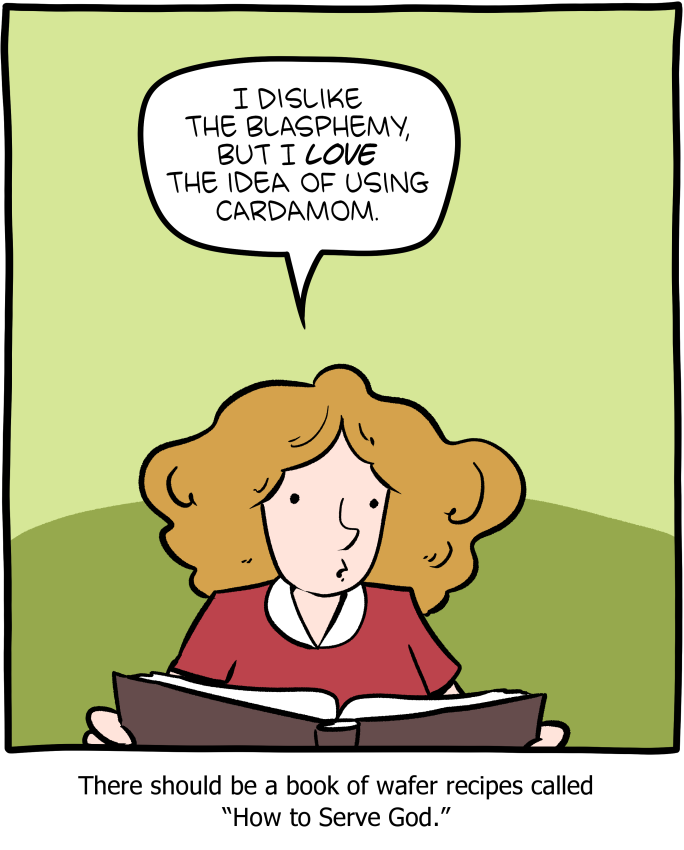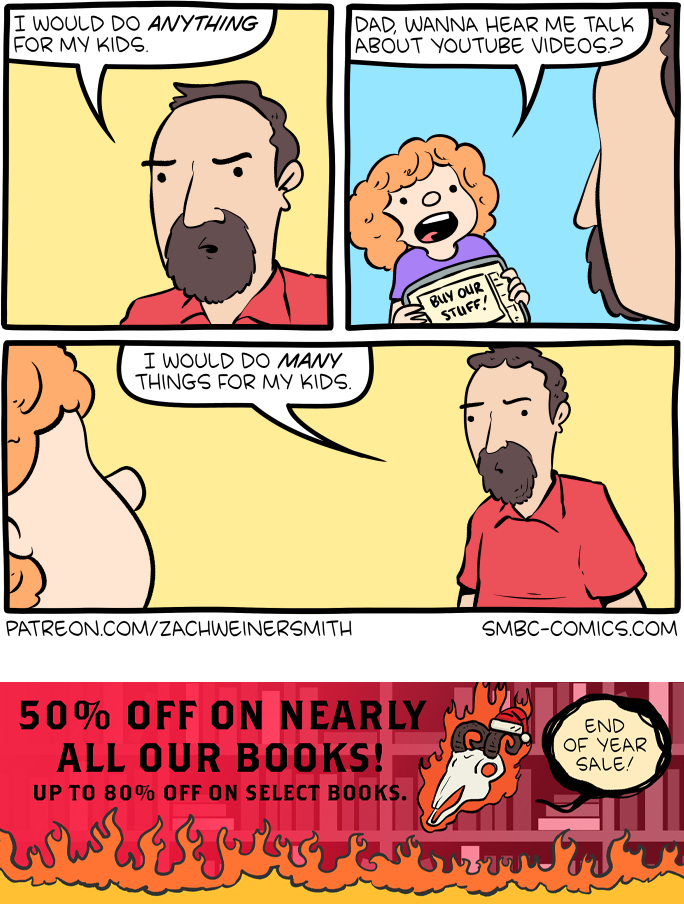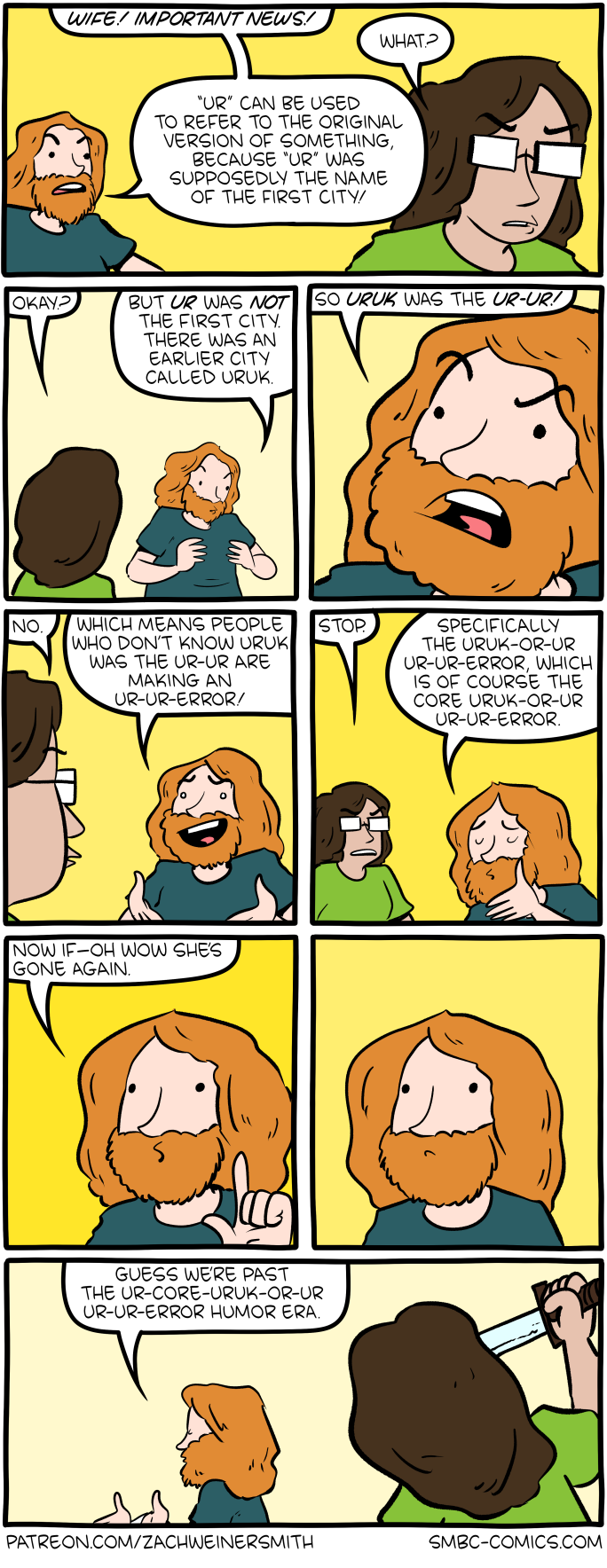
[Source: Down the Upward Spiral | Angry at Nothing | Like “Down the Upward Spiral” on Facebook]
Enjoying the content? Please consider supporting Geeks are Sexy!Click This Link for the Full Post > A Message from a Distant Alien Civilization [Comic]

[Source: Down the Upward Spiral | Angry at Nothing | Like “Down the Upward Spiral” on Facebook]
Enjoying the content? Please consider supporting Geeks are Sexy!Click This Link for the Full Post > A Message from a Distant Alien Civilization [Comic]

Hovertext:
Personally, I transsubstantiate every kitkat I eat.










Security Square Mall has some nice neon, palm trees, and brick floors. Its occupancy isn’t too bad as of a year ago, but now that Macy’s is gone, there may be problems

Hovertext:
Comics like these are the real reason my kids aren't old enough to read SMBC yet.

Hovertext:
Also you can add irr- to the front to negate the idea.